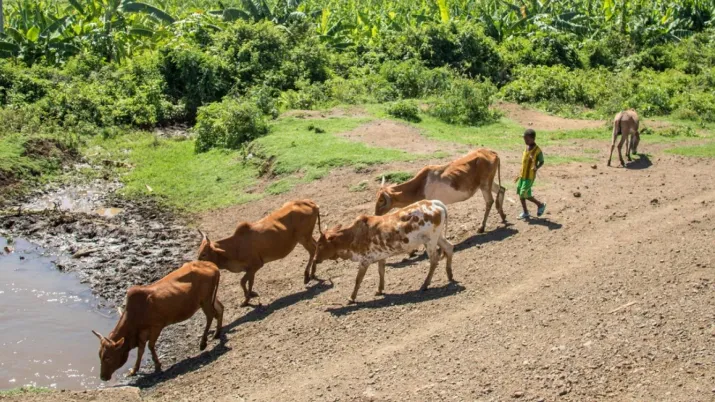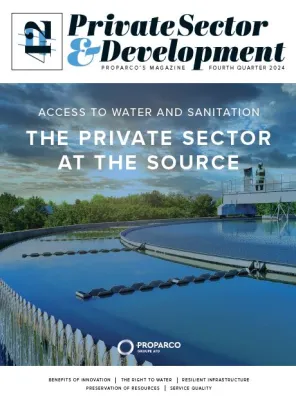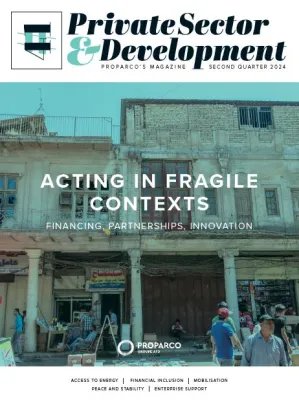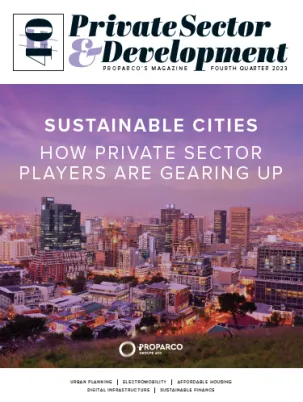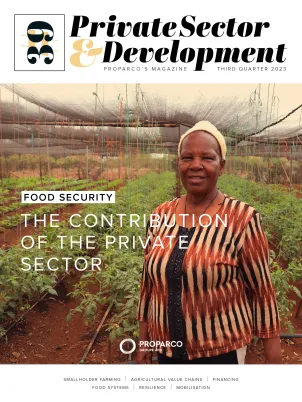Share the page
How IFU continues to invest in Ukraine despite war and high risk
Published on
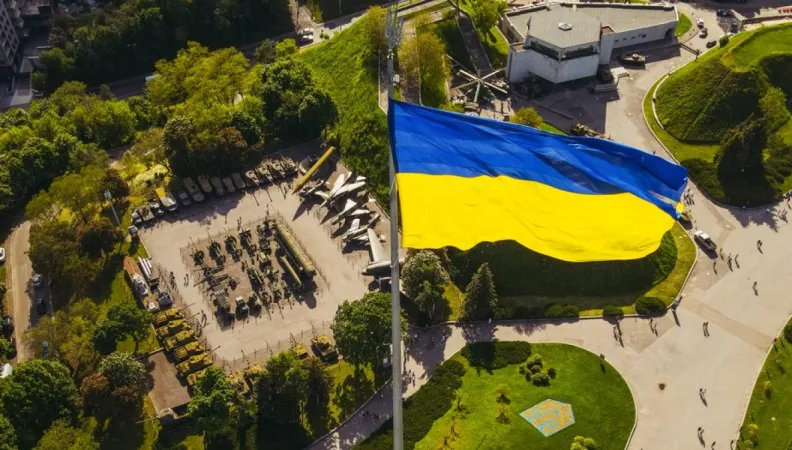
Private Sector & Development #43 - European development finance institutions: strategic players in changing times
Proparco is publishing the 43rd edition of its Private Sector & Development magazine, focused on the action of European development finance institutions (DFIs).
The Danish Investment Fund for Developing Countries (IFU) is working tirelessly alongside the Ukrainian government and society to support the country’s businesses and people. It follows a rigorous funding process, while upholding sustainability principles.
Russia’s invasion of Ukraine has dramatically changed the financial and business landscape.Yet, IFU has not withdrawn from its significant portfolio in Ukraine. On the contrary, the fund continues to make new investments, helping the Ukrainian economy to withstand and build back better. In 2023 and 2024, IFU financed six new projects in Ukraine. These included loans to Bank Lviv focusing on SMEs, a mid-sized food producer and three manufacturing companies, as well as an investment in the Horizon Capital PE fund. Even before the war, such an investment volume in a single country would have been considered an outstanding achievement. The risk capital provided by IFU is allocated from an eight billion euros fund for Ukraine established by the Danish government. Most of this is for military support. But a portion is also allocated to civilian activities and private sector investments.
Businesses demonstrate remarkable resilience
IFU has more than 25 years of experience investing in Ukraine and had 15 active investments in the country when Russia invaded. All except one have remained operational throughout 2022-2024, and demonstrated enormous resilience and strong performance with both Ukrainian as well as Danish personnel working under exceptionally challenging conditions.
The role of IFU is - despite the war - to continue to provide risk capital that enables the investees to restore revenues, maintain tax contributions, retain jobs and create new opportunities for vulnerable groups such as women and veterans – while upholding sustainability principles. If Ukraine’s economy collapses, the cost of reviving it will be far greater than supporting it now.
While conditions have changed, IFU continues to follow a rigorous project assessment process, carefully analysing each potential investee’s business plan and financial model. It disregards Ukraine’s country risk, to keep interest rates viable for borrowers. Yet it continues to perform strict due diligence on business models, financial projections and risk factors. IFU assumes that borrowers will be able to repay their loans despite the wartime uncertainties.
Focus on commercially viable companies
In that regard, IFU’s mandate remains unchanged, and the fund continues to provide structured, redeemable financing to commercially viable companies that form the backbone of Ukraine’s economy, ensuring they remain healthy and bankable. One of the most surprising lessons since the war began has been Ukraine’s resilience. Key business infrastructure remains functional, including connectivity, electricity, banking systems, and logistics, all performing better than initially forecast. But numerous challenges stills exist, including labour shortages due to mobilization, Russian attacks on energy infrastructure, with risks of blackouts, as well as corruption concerns. These issues must be addressed and will require continued, dedicated “efforts” from the Ukrainian government, local society and Ukraine’s allies. Looking ahead, IFU is actively building its investment pipeline and leveraging European financing and guarantee instruments alongside its own funding. And the Fund’s Kyiv office is working tirelessly to support existing clients, process new investments swiftly, and ensure that Ukraine emerges from this crisis strong and independent.
On the same topic
Developing and investing in frontier markets to achieve the SDGs
How FMO is working (providing technical assistance) and investing in frontier markets to develop opportunities into financeable projects.
Published on May 19, 2025


